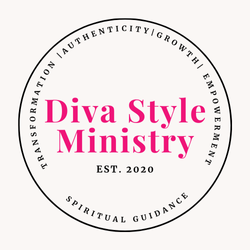Self-improvement includes enhancing one’s knowledge, social status, inner self, and physical condition through deliberate, positive efforts. This concept, rooted in ancient philosophies and modern psychological sciences, aims to facilitate personal growth by improving areas where individuals perceive their own deficiencies.
The Psychology of Self-Improvement
At our core, many of us harbor a deep-seated desire to better ourselves, though for some, this can manifest as a harmful belief in one’s fundamental flaws. Self-improvement means more than just “I need to change” because as long as we are living and breathing, we are changing. Why not do what you can to ensure the changes are positive and lasting?
When channeled positively, the impulse to be a better, stronger, more confident, and accomplished version of yourself can drive personal development and substantial growth. It’s crucial to distinguish between destructive self-criticism and constructive self-improvement.
Key Pillars of Self-Improvement
The journey of self-improvement can be supported and encouraged by several key pillars:
- Personal Responsibility: Recognizing that you are the sole architect of your life and that your choices shape your path.
- Definition and Outlining: Clearly defining your goals and what you value most helps in mapping out your personal and professional journey.
- Understanding Costs: Acknowledging that self-improvement often requires sacrifice, whether it’s emotional, physical, financial, or spiritual.
- Physical Changes: Emphasizing the importance of physical health as a foundation for achieving personal goals.
- Time and Space: Appreciating the present while using lessons from the past and preparing for the future.
Embracing Your Personal Power
True self-improvement means maintaining and enhancing your ability to make your own decisions rather than being influenced by the opinions of others, or being told what to do by someone else. Exercising your autonomy and making decisions that resonate with your personal values, regardless of external opinions greatly increases your chances of success and ultimately, happiness with your decisions.
It involves listening to advice and learning from others, but never at the expense of your own voice and power. Remember, choosing inaction is still a form of decision-making, and it’s crucial to take proactive steps toward the changes you wish to see in yourself.
The Journey vs. The Destination
Self-improvement is more about the journey than the destination. It’s a continuous process of learning and growth, not a final state to be achieved. Each step on your self-improvement path should be valued and experienced fully, as personal evolution is an ongoing journey, not a single outcome to be reached.
Physical and Emotional Health
Our physical bodies, emotions, and consciousness are intricately linked and contained within the same vessel. Regular exercise, proper nutrition, adequate hydration, and sufficient sleep are essential for maintaining the stamina required to pursue our goals. Taking care of your body supports your mental and emotional health, enabling you to pursue and enjoy your achievements.
Conclusion
Self-improvement is a powerful tool for personal and professional growth. By embracing the key pillars of self-improvement and recognizing the importance of both the journey and the destination, you can make meaningful progress toward becoming the best version of yourself.
It’s about making informed decisions that align with your deepest, authentic values and intentionally deciding to enjoy each moment of your journey to self-betterment.





